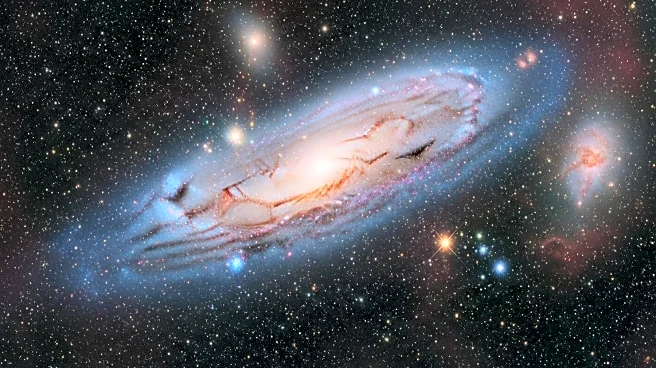What's Happening?
The Hubble Space Telescope has recently captured an image of the galaxy M82, also known as the Cigar Galaxy, which is classified as a starburst galaxy due to its accelerated star formation rate. M82 forms stars at a rate 10 times faster than the Milky Way, leading to immense gas outflows and the development of super star clusters. These clusters contain hundreds of thousands of stars and shine far brighter than typical star clusters. The galaxy is located 12 million light-years away in the constellation Ursa Major. Hubble's observations of M82 contribute to understanding star formation, stellar winds, and super star clusters.
Why It's Important?
The observations of M82 by the Hubble Space Telescope are significant for astronomers as they provide insights into the processes of star formation and the evolution of stellar nurseries in extreme environments. Understanding these processes is crucial for comprehending the lifecycle of galaxies and the dynamics of star clusters. The data gathered from M82 can help refine models of galaxy formation and evolution, impacting theories in astrophysics and cosmology. Additionally, the study of such energetic galaxies can inform future astronomical research and technology development.
What's Next?
Astronomers will continue to study M82 using various telescopes, including the James Webb Space Telescope, which has recently observed the galaxy in infrared wavelengths. These observations will further enhance the understanding of the galaxy's dynamics and star formation processes. Continued research may lead to new discoveries about the behavior of starburst galaxies and their role in the universe. The findings could influence future space missions and the development of advanced observational technologies.
Beyond the Headlines
The study of M82 also raises questions about the environmental conditions that lead to such high rates of star formation. Exploring these conditions can provide insights into the potential for similar processes in other galaxies, including our own. The ethical dimension of space exploration and the allocation of resources for such research may also be considered, as the pursuit of knowledge about distant galaxies competes with other scientific and societal priorities.









